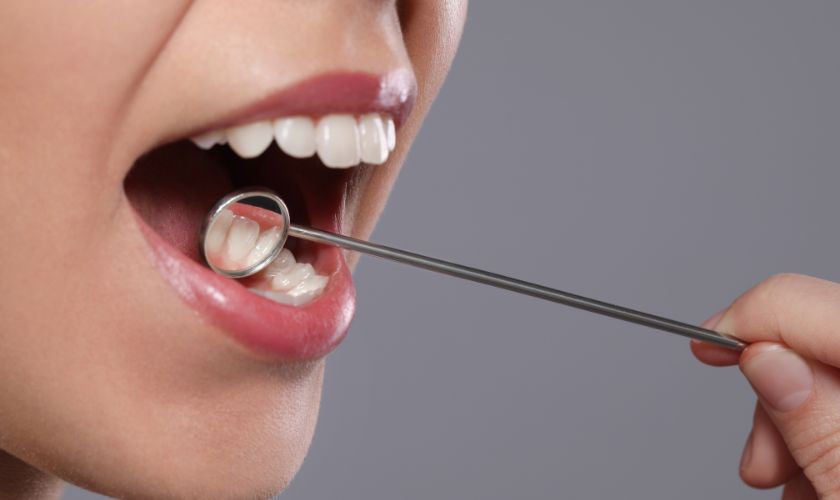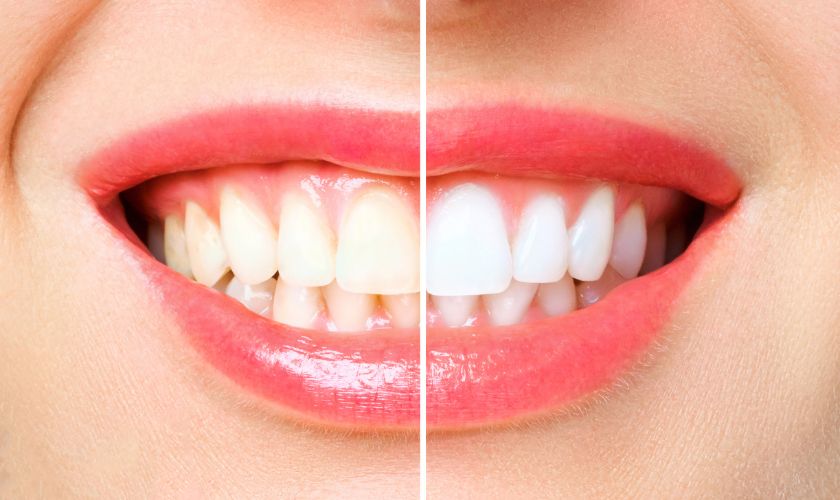Dental anxiety is more common than you think, affecting an estimated 9-15% of the population.1,2 While some people may feel a little nervous about going to the dentist, for others, the fear can be so intense that it prevents them from seeking needed dental care.3
There are many possible causes of dental anxiety, including bad experiences in the past, fear of pain, and embarrassment over the condition of one’s teeth.4 Whatever the cause, dental anxiety can have a serious impact on your oral health. People with dental anxiety are more likely to have neglected oral hygiene and to have cavities and other problems with their teeth.5
If you suffer from dental anxiety, there are many ways to cope with it and get the dental care you need. Here are a few tips:
• Find a dentist who understands your fears and is willing to work with you to make your visits as comfortable as possible.
• Talk to your dentist about your concerns before treatment begins. This will help them understand your needs and tailor their approach accordingly.
• Ask about sedation options. Many dentists offer conscious sedation options such as nitrous oxide (“laughing gas”) that can help you relax during treatment.6
• Distract yourself during treatment by listening to music or watching TV.7
With a little effort, you can find ways to overcome your dental anxiety and get the care you need for a healthy
What Causes Dental Anxiety?
Dental anxiety is a common condition that affects millions of people. It can be caused by a variety of factors, including fear of needles, fear of the unknown, and fear of pain. Dental anxiety can also be caused by previous bad experiences at the dentist. If you have dental anxiety, you may experience symptoms such as a racing heart, sweating, or difficulty breathing. You may also avoid going to the dentist altogether. While dental anxiety is a real and valid condition, there are ways to cope with it. Here are some tips:
- Talk to your dentist about your anxiety. They can help to put you at ease and make sure that you are comfortable during your appointment.
- Try relaxation techniques such as deep breathing or visualization before your appointment.
- Listen to calming music or audio during your appointment.
- Bring a friend or family member with you to your appointment for support.
- Ask for numbing agents such as topical anesthesia or nitrous oxide gas to help reduce discomfort during your procedure.
How to Cope with Dental Anxiety
Dental anxiety is a common condition that affects many people. It can be caused by a number of factors, including previous bad experiences, fear of needles or pain, or simply a dislike of the dentist. Whatever the cause, dental anxiety can make it very difficult to keep up with good oral hygiene and can lead to further problems down the road.
Fortunately, there are a number of things you can do to cope with dental anxiety and make your visits to the dentist more bearable. Here are some tips:
- Talk to your dentist about your anxiety. They should be able to offer you some tips on how to relax during your appointment.
- Listen to music or audio books during your appointment. This can help take your mind off of what’s going on and help you relax.
- Bring along a friend or family member for support. Having someone else in the room can help ease your anxiety.
- Practice deep breathing exercises before and during your appointment. This can help calm your nerves and keep you from panicking.
- With these tips, you should be able to better cope with your dental anxiety and get the care you need without too much stress.
Tips for Coping with Dental Anxiety
If you’re one of the many people who experience dental anxiety, know that you’re not alone. There are plenty of people who feel just as anxious as you do about going to the dentist. The good news is that there are ways to cope with your anxiety so that you can get the dental care you need without all the stress. Here are a few tips for coping with dental anxiety:
1. Talk to your dentist about your anxiety. They can help put you at ease and make sure that you’re comfortable during your appointment.
2. Distract yourself during your appointment. Bring along a book or listen to music through headphones to help take your mind off of what’s happening.
3. Breathe deeply and slowly throughout your appointment. This will help to relax your body and mind.
4. Visualize yourself relaxing in a peaceful place. Imagine yourself somewhere calm and serene, like a beach or a meadow, and focus on that image during your appointment.
When to Seek Help for Dental Anxiety
If you have dental anxiety, you may feel nervous or even scared about going to the dentist. This is perfectly normal! However, if your anxiety is preventing you from getting the dental care you need, it’s important to seek help.
There are many resources available to help you cope with your dental anxiety. Your dentist can talk to you about your concerns and help you find ways to make your visits more comfortable. There are also relaxation techniques that can help ease your anxiety.
If your anxiety is severe, you may need to see a mental health professional for additional help. This is nothing to be ashamed of – seeking help is a sign of strength, not weakness. With the right support, you can overcome your dental anxiety and get the healthy smile you deserve!
Conclusion
Dealing with dental anxiety can be a difficult process, but it is possible to manage it. By understanding the source of your fears, finding ways to cope with the stress and worry associated with going to the dentist, and taking steps to make your visit as comfortable as possible, you can learn how to overcome dental anxiety. With enough time and dedication, your fear of going to the dentist will eventually dissipate and you’ll be able to enjoy a positive experience at each appointment.
FAQs
There are many different factors that can contribute to dental anxiety, including previous bad experiences, the fear of pain, and the fear of the unknown. Other common triggers include the sight of blood, needles, or other medical instruments.
Dental anxiety can manifest itself in many different ways. Some people may feel nervous or anxious when thinking about going to the dentist, while others may experience a full-blown panic attack when faced with actual dental procedures. Symptoms can also vary from person to person, and may include sweating, shaking, shortness of breath, heart palpitations, and dizziness.
There are a number of different ways to deal with dental anxiety. For some people, simply talking to their dentist about their fears can be helpful. Others may benefit from relaxation techniques such as deep breathing or visualization. In more severe cases, sedation dentistry may be necessary to help a patient through their procedure.
Visit Smiles of Punta Gorda
We can see you as soon as tomorrow!





